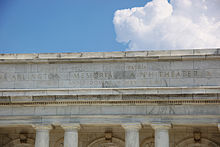
Dulce Et Decorum Est
We found 7 free papers on Dulce Et Decorum Est
Essay Examples
Overview
“Dulce Et Decorum Est” a Poem About War Literary Devices
Dulce Et Decorum Est
The poem begins with a Latin title, Dulce Et Decorum Est, meaning it is sweet and honourable to die for one’s country. The meaning of title is already very ironic as the whole poem is actually looking at war from a very negative point of view. It is blatantly to the point as the poem…
Dulce et Decorum Est Analysis
Dulce Et Decorum Est
The poem stands as perfect example for a war poem. The poet brings out his war experiences in through this poem. In “Dulce Et Decorum Est”, Owen expresses his reaction to the war by using the seemingly perfect traditional poetic form with deliberate imperfect execution suggesting the topsy-turvy situation of war. Owen’s violation of the…
Dulce et Decorum Est” and “The Soldier Comparison
Dulce Et Decorum Est
Soldier
Although the poems “Dulce et Decorum Est “by Wilfred Owen, and “The Soldier” by Rupert Brooke, share the elements of writer passion and subjectivity, they differ with regards to tone, theme and literary devices. The lyrical poem, “The Soldier” was written during the period before the World War, and thus presents an unrealistic viewpoint of…
Comparison Between “The Send Off” and “Dulce and Decorum Est”
Dulce Et Decorum Est
Poetry
Wilfred Owen
In this essay I’m going to compare the language, of the poem “Dulce es Decorum Est” and “The Send Off”. Even if both poems are war poems and both are written by the same author (Wilfred Owens) the two poems both have similarities and differences. “The send off” tells of a group of soldiers who…
How Does “Dulce Et Decorum Est” Undermine the Idea That War Is Glorious
Dulce Et Decorum Est
War
Dulce Et decorum Est is a poem written by Wilfred Owen, which undermines the idea that war if glorious by showing the horrific imagery and condemnation of war. The poems versions of reality creates a sharp and deeply ironic line between the civilians who prop up war efforts and the men who fight their battles;…
Comparison of Dulce Et Decorum Est, and Refuge Blues English Coursework
Blues
Dulce Et Decorum Est
Both the poems are based at periods of War, but the difference being is that ‘Dulce Et Decorum Est’ depicts the very physical suffering of the soldiers in the muddy, bloody trenches of the First World War, (The Great War), and is written for the purpose of educating those on the home front, who are…
“Dulce Et Decorum Est” by Wilfred Owen Analysis
Alliteration
Dulce Et Decorum Est
In the poem ‘Dulce Et Decorum Est’ by Wilfred Owen, an important theme that caught my attention was the notion of a lie. The lie being that it is glorious and honorable to die for one’s country. Owen skillfully employs vivid figurative language and effective poetic techniques like rhyme, rhythm, and alliteration to convey a…
| author | Wilfred Owen |
|---|---|
| theme | The ideals of war spread by patriotism and propaganda, Owen argues, serve only to perpetuate the suffering of those who fight., |
| originally published | 1920 |
| description | Dulce et Decorum est is a poem written by Wilfred Owen during World War I, and published posthumously in 1920. The Latin title is taken from Ode 3.2 of the Roman poet Horace and means "it is sweet and fitting". It is followed by pro patria mori, which means "to die for one's country". |
| information | Allusion: The allusion in “Dulce et Decorum Est” is in the title and in the last two lines. It comes from a poem in Latin called “Ode: III. 2” by a Roman poet named Quintus Horatius Flaccus—or Horace., Purpose: The purpose of the poem, Dulce et Decorum Est, is to try to explain to the public that war is not at all glorious. Owen finishes this poem by saying to not tell children who want glory that to die for your country is not as sweet as it may seem., Rhyme scheme: The rhyme scheme of “Dulce et Decorum Est” is, of course, ababcdcd, etc. (the traditional pattern of an English sonnet prior to the turn), but Owen does not complete the turn by ending on a rhyming couplet. |

